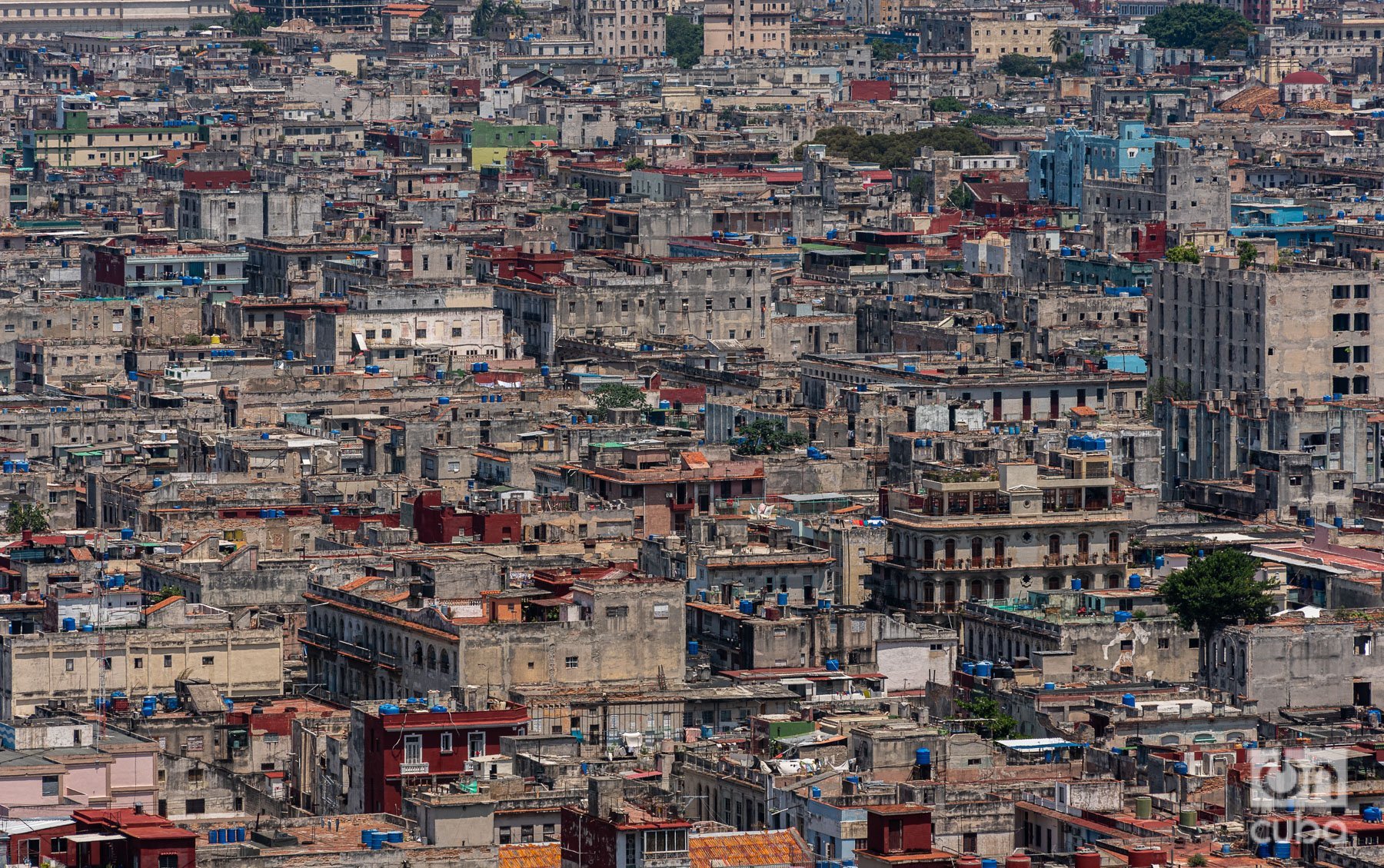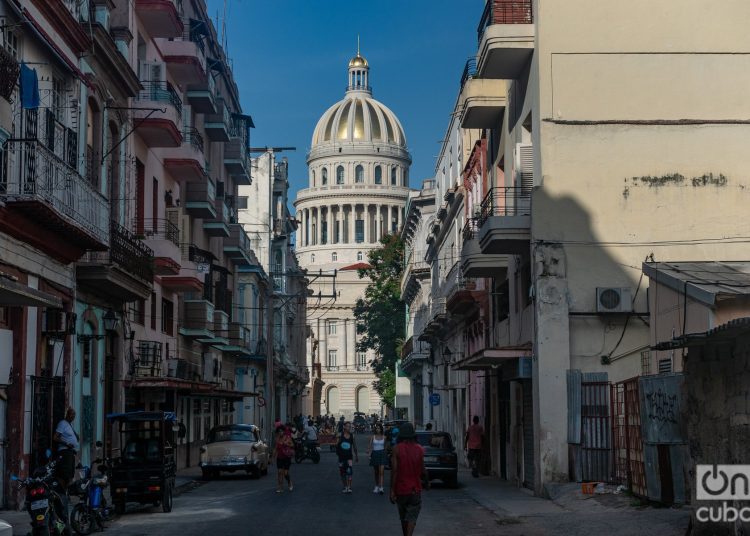If 2022 could be seen in Cuba as “the year of laws” due to the enormous depth and social significance of those approved that year by the National Assembly (the Family Code, the Penal Code and the Law on the Protection Process of Constitutional Rights), 2023 could be called “the year of decree-laws.”
Among them, there were some of such relevance as the decree-law “On the Security and Protection of Classified and Limited Information” and “On the Development, Application and Use of Cryptographic Protection Devices and Services in the Sphere of Cryptography in the Republic of Cuba,” not published in the Gaceta Oficial, and for which the number that identifies them is not even known.
According to Cubadebate, “the first of these regulatory provisions establishes the rules to guarantee the security and protection of information and data on any medium that reflects the activity of the State or information issued by another legal entity or individual, as long as it is legally recognized by the Cuban State, when its disclosure or unauthorized knowledge, alteration or non-availability, represents a risk, threat or damage.”
For its part, “the second decree-law stipulates the organization of scientific and technical development, the application and use of cryptographic protection devices, the organization and operation of services in the sphere of cryptography, and the operation of the system of national work to comprehensively ensure the quality of the aforementioned products and services.”
As for 2024, it could well deserve the nickname “year of deferred laws,” given that, of those that should have been approved in 2023, the most important were pending for this year. This is the case of the Transparency and Access to Information Law (April 2024), the Migration, Immigration, and Enterprise Laws (July 2024) and the Land Possession and Use Law (December 2024). It is needless to emphasize the importance of the aforementioned laws, which regulate matters of great political and economic sensitivity, and have also been demanded by specialists and various sectors of citizens for years.

Delay and opacity
The approval of legal norms made known through semi-official channels such as some media outlets, and which presumably will come — or have already come — into force without being published in the Gaceta Oficial de la República, is one of the greatest dysfunctions that afflict Cuban Law.
A law, decree-law, decree, or any other regulatory act can only come into force and have legal effects after its official publication in the only medium established for that purpose, which in Cuba is the Gaceta Oficial de la República.
On the other hand, that the National Assembly of People’s Power, the highest body of power of the State, postpones without discussion or public debate the approval of laws of such importance leaves much to be desired in terms of the authority and control that over the government and its decisions should be exercised by a Parliament, the seat of people’s sovereignty, which is aggravated by the scarce five or six days of plenary sessions in an entire year, something unusual and without comparable experiences in the world.
It has become almost a tradition, along with the opacity of the process, the tendency to delay the approval of the most important legal regulations, especially those linked to the profound and urgent reform required by the country’s economic system, and which were globally outlined with the Economic and Social Policy Guidelines in 2011, almost thirteen years ago.
The most recent example of the tendency to delay what cannot be postponed is the bill of the Law of Enterprises, which has been announced for years, and on which there seems to be no consensus among the ruling elite. The law should regulate, among other aspects, the relationship between state enterprises and private enterprises, as well as the principles and requirements of their constitution, operation and obligations.
This has generated enormous interest among many specialists and scholars of the Cuban economy, since the future legal text would deal, for the first time, with the procedure to be followed with enterprises that declare bankruptcy, the destination of their social capital and the labor guarantees for its workers and, on the other hand, it must deal with the constitution and functions of the enterprises associated with the Gaesa military group, which until now have operated under conditions of great autonomy in their management ― denied to their counterparts ― and opacity regarding their investment plan and the amount and destination of their considerable income.
Other important laws
As for the rest of the laws that must be approved this year and about which little is known, some will regulate matters of undeniable importance. Among them, the Law of Administrative Procedure that will regulate, according to the Legislative Schedule approved by the ANPP last December, “the administrative procedure for better management of the Public Administration before the population”; the Customs Law, which must regulate everything related to the entry into the country of all types of goods and products, which is transcendent in itself (just think about the international regulations on smuggling and trafficking of works of art, exotic animals, drugs, chemical, and radioactive substances), and even more so in a nation in which this is one of the main means of supplying the informal market for essential products ― medicines, food and other items ―, today the most accessible way for Cubans to acquire them, taking into account the shortage in stores and markets operated by the State.
In addition to those mentioned, the new Tax Law must be approved by the National Assembly, which will update the fiscal policy, and the Code of Contraventions, which will regulate the juridical consequences for legal infractions that do not constitute crimes punishable by criminal justice.
Along with them, the new Labor Code also stands out, which must regulate matters relating to the field of labor relations, the rights and obligations of workers and their employers, in a socioeconomic environment where labor exploitation has emerged strongly and with very few guarantees for workers, especially in the growing private sector.
Finally, the Child, Infancy and Youth Code must update legislation from 1978, to make it consistent with the 2019 Constitution, regarding the rights of children and adolescents, beyond the family sphere, regulated in the Family Code.

The Transparency and Access to Information Bill (perhaps the one that has received the most disclosure) aims to comply with the provisions of art. 54 of the 2019 Constitution, relating to the right of all citizens to access public, truthful and transparent information about the management of state and government institutions.
According to Granma newspaper, the bill’s objectives are to “guarantee the exercise of the right of access and facilitate a greater amount of available information, as well as contribute to the effective and responsible compliance of the obligations of the obligated subjects, concerning transparency and access to public information, and the protection of citizen rights provided for in the Constitution of the Republic.”
The note adds that “every person, without any type of discrimination, has the right to access and consult public information, which includes the right to receive and disclose it, as long as it is not among the exceptions established in this law.”
However, some details of the bill are worrying. In general, it reproduces problems pointed out in the new Penal Code and the Law on the Process of Protection of Constitutional Rights, due to the use of excessively generic and vague language, definitions far from the best international standards, and a wide margin for the arbitrariness of the authorities through extensive interpretations. In particular, it contains a restrictive and biased definition of the concept “public information,” defined as “that which is generated or guarded, in the exercise of their public functions, by obligated subjects” (article 2.1), instead of referring to the “Activities of Public Interest” (much broader and more guaranteeing). It also does not contemplate the principle of “maximum publicity,” nor does it specify that the requesting person must not explain the reasons why they request the information (as established by the best international standards).
Nor does it adequately define its scope and the right of access by applicants; establishes an extremely broad and discretionary regime of exceptions, especially in cases related to national defense and security; among the obligated subjects there is no reference to judicial or legislative bodies; an autonomous and independent guarantor body is not created or designated, but, on the contrary, the designated body with some equivalent functions is a Ministry, that of Science, Technology, and Environment (article 6), which must “control the obligated subjects, except for State bodies, which assume the stewardship of their System of Transparency and Access to Public Information.”
In other words, the highest organs of the State are exempt from any type of external supervision and control, which violates the universal principle that no one can be judge of their own cause.

A trend
Estimating the possible quality and effectiveness of the laws that must be approved this year is always a risky exercise, even more so taking into account the social and economic scenario in which they will govern, on the one hand, and, on the other, the little information we have regarding the legislative projects that the National Assembly must debate and approve.
One thing is certain: the laws approved in the last two years, in compliance with the ambitious ongoing legislative program that aims to update and adapt Cuban Law to the new constitutional frameworks established in 2019, reveal a worrying trend; namely: that these laws, some of such depth and importance as the Penal Code, the Law on the Process of Protection of Constitutional Rights, the Law on Social Communication, as well as the Law on Transparency and Access to Public Information (planned for this year), contain firewalls and barriers to the exercise of constitutional rights by citizens. If the trend does not change, it will be difficult for the laws to make the promise of Article 1 of the Constitution a reality, which is a mandate from the sovereign, Cuban people: a socialist State of Law and social justice.










